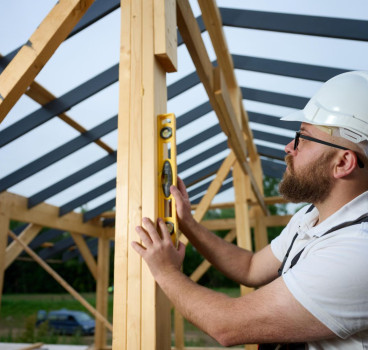Why AI is the game changer in construction’s fight against climate change
As a construction professional, you're likely aware of the pressing need for sustainability in your industry. The construction sector is responsible for a significant portion of global greenhouse gas emissions and artificial intelligence (AI) is emerging as a transformative solution.
The Construction Industry's Environmental Impact
The construction industry significantly affects the environment:
- Greenhouse gas emissions: Approximately 37% of global greenhouse gas emissions are attributed to the buildings and construction sector.
- Energy consumption: Buildings consumed 34% of the world’s energy in 2022.
- Resource usage: Cement, aluminum and steel production contribute to a staggering carbon footprint.
How AI Is Enhancing Sustainability in Construction
AI is revolutionizing the construction industry by introducing sustainable practices across various stages of a building's life cycle.
Optimising Building Design
AI is revolutionizing how construction professionals approach sustainable design. With advanced simulations, AI can predict a building’s energy consumption before construction even begins. This allows your team to make strategic adjustments that improve energy efficiency, such as incorporating renewable energy systems or optimizing insulation.
Improving Construction Processes
You can use AI to enhance on-site efficiency and minimize your environmental impact by improving how you plan and execute construction activities:
- Construction automation: AI-driven robotics handle repetitive tasks with precision, minimizing material waste. For instance, companies like Terabase use AI-powered robotics to speed up the construction of solar projects while reducing costs.
- Predictive maintenance: AI forecasts equipment failures before they happen, reducing reactive repairs and downtime. For example, electric forklifts are more cost-effective than internal combustion models due to lower energy costs, but they can take up to eight hours to fully charge. AI addresses this by optimizing charging schedules, predicting battery health and ensuring off-peak charging.
- Supply chain optimization: By analyzing real-time data, AI reduces material over-ordering and optimizes delivery schedules. This decreases the environmental cost associated with transporting materials while ensuring resources are used efficiently.
Enhancing Energy Management in Buildings
Even after construction is finished, you can rely on AI to ensure your buildings operate sustainably. AI-powered smart building systems monitor and optimize energy consumption, adjusting in real time based on occupancy and weather conditions.
For example, an AI system implemented in a Manhattan building reduced HVAC energy use by 15.8%, which helped cut 37 metric tons of CO2 emissions and saved residents $42,000 annually. In addition to smart systems, AI enables adaptive energy use, which responds dynamically to changes in energy demand.
Facilitating Sustainable Urban Planning
With AI, you can shape the future of cities through smarter, more sustainable urban planning. By analyzing population trends and environmental data, AI can predict how urban areas will grow. This foresight helps professionals like you design eco-friendly infrastructure that reduces energy consumption and improves public transportation efficiency.
Another application is resource allocation. AI can monitor and manage essential resources like water and electricity, optimizing their distribution to minimize waste. This data-driven approach helps cities reduce their carbon footprint while accommodating future growth.
Advancing Material Recycling and Waste Reduction
AI can also help you reduce construction waste — a critical step toward making your projects more sustainable. Here are some examples:
- Automated waste identification: AI algorithms can quickly identify and separate recyclable materials from construction debris, reducing the amount of waste sent to landfills.
- Developing sustainable materials: AI supports the innovation of new building materials made from recycled content. For example, researchers in Taiwan are using AI to convert construction waste into durable, reusable components.
Embracing AI for a Sustainable Future
As a construction professional, AI is a powerful tool at your disposal. By optimizing design, streamlining processes, enhancing energy management, supporting urban planning and promoting recycling, AI serves as a pivotal tool in combating climate change.
Additional Blogs

Construction site safety - is zero tolerance realistic?
Walk onto almost any construction site in the country and you will see it printed in bold letters across hoardings and induction slides: ZERO TOLERANCE. It sounds decisive, reassuring and strong. The...
Read moreIs timber construction really greener - or just trendy?
Over the past decade, timber has enjoyed something close to a renaissance. Architects talk about warmth and biophilic design. Developers highlight carbon storage. Contractors discuss speed of...
Read more

4 Must-Follow Health and Safety Habits for the Modern Jobsite
The risks in modern jobsites are constant. Falls, chemical exposure and heat illnesses continue to injure workers across construction and related industries each year. The best way to reduce those...
Read more